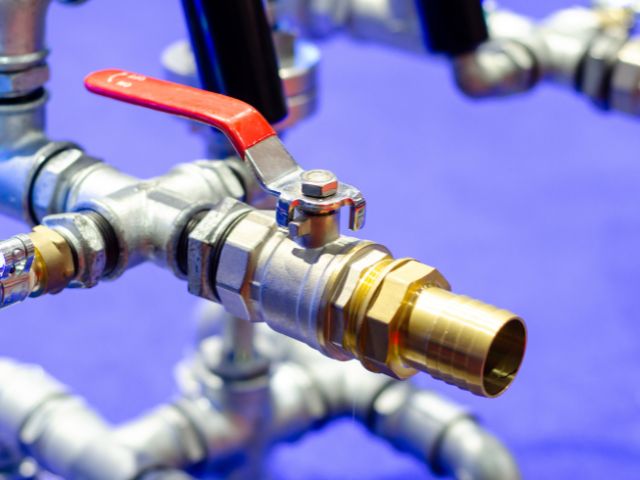
Ball valves play a pivotal role in controlling the flow of liquids and gases in industrial and residential systems. In this guide, we aim to provide everything you need to know about ball valves, covering their structure, types, applications, and advantages.
Ball valves consist of a ball with a hole through its center and control the flow of substances. When the valve is open, the hole aligns with the flow, allowing substances to pass through. Rotating the ball 90 degrees closes the valve, with the solid side of the ball blocking the flow. This simple yet effective mechanism makes ball valves highly reliable and easy to operate, offering precise flow control and minimal pressure loss. That’s why a low flow rate is one of the signs it’s time to replace a ball valve.
Several types of ball valves cater to different pressures, temperatures, and flow conditions. The most common are full port, reduced port, and multi-port ball valves. Full port valves have a hole the same size as the pipeline, reducing friction and pressure loss. Reduced port valves, smaller than the pipeline, are for when less flow is necessary. Multi-port valves offer more than two ports, allowing for complex flow redirection and distribution in a system.
Ball valves boast diverse applications across various sectors, including oil and gas, water treatment, chemical processing, and pharmaceuticals. Their ability to handle high pressure and temperatures, coupled with their durability and leak-proof nature, makes them ideal for critical applications where precise flow control and safety are paramount.
In residential settings, ball valves are common in water and gas lines, providing homeowners with a reliable means of controlling utility flows.
The advantages of using ball valves are numerous. They offer excellent shut-off capabilities, making them a preferred choice for applications requiring a tight seal. Their straightforward design allows for quick and easy operation, reducing the time necessary for maintenance or operation. Additionally, ball valves are versatile, capable of handling fluids, gases, and slurries with varying viscosities and corrosiveness. Their robust construction ensures a long service life, making them a cost-effective option for both industrial and residential use.
There you have it—everything you need to know about ball valves, including their design, types, applications, and advantages. These valves are indispensable in a wide range of professional settings due to their reliability, efficiency, and operational simplicity.
24World Media does not take any responsibility of the information you see on this page. The content this page contains is from independent third-party content provider. If you have any concerns regarding the content, please free to write us here: contact@24worldmedia.com